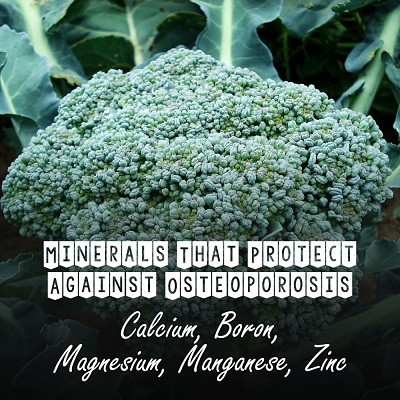 Many women develop osteoporosis as they get older, and many assume that this is normal and natural, or that what has already begun cannot be reversed. But, we couldn’t be further from the truth when we assume these things.
Many women develop osteoporosis as they get older, and many assume that this is normal and natural, or that what has already begun cannot be reversed. But, we couldn’t be further from the truth when we assume these things.
Losing bone density and bones becoming fragile are not inevitable as we grow older, in fact, more and more younger women are developing it… just because their diets are poor!
And, even though a lifetime of inactivity, poor diet, and stress cannot be reversed overnight, you can definitely work hard towards remineralizing your bones, even after 50.
Why is it that these symptoms are only just starting now? And, why is osteoporosis traditionally associated with menopause? Quite simply: during the menopause our hormones shift away from holding onto things – like protein, fat, and bones, for a short period of time.
Estrogen, the female sex hormone, and progesterone, a growth hormone, both drop suddenly. But, these hormones do more than just maintain our periods. Where bones are concerned, estrogen helps us absorb calcium, and progesterone helps us keep the collagen that is holding our bones together.
This means that someone who has had apparently healthy bones her entire life could suddenly fall into an imbalance which then results in minerals being stripped from her bones.
However, there is a simple way to avoid and reverse this problem – consume more minerals! It’s never too early or too late to start fixing your bone health by eating better and taking a good mineral supplement to encourage bone regrowth.
Calcium
Calcium is obviously the first mineral you need. Calcium makes up 2% of your body weight, and most of that is locked up in our bones. But if we don’t eat enough calcium, our body will strip it out of our bones for other vital functions.
Always make sure you have enough vitamin D3, magnesium, and boron in your diet, otherwise you will not absorb or use calcium properly. The average diet only provides half the calcium you need every day, so you must work hard to ensure you eat enough.
Boron
Boron is less heard of and is a mineral which is, nevertheless, great for your bones. It is needed to metabolize calcium, magnesium, and D3 properly. The benefits of boron are a very recent discovery, but research is promising, showing that boron helps us to hold onto and recycle minerals in our bodies.
Magnesium
Magnesium is also essential to bone health. Without enough magnesium, roughly 400-800 mg per day, we do not absorb calcium properly. Why? Because magnesium is what turns sunlight, or vitamin D2, into the vitamin D3 that our bodies can actually use.
This results in better calcium absorption and much stronger bones. It is also vital to the production of hormones that help with bone growth, making our bones firmer and harder.
Manganese
Manganese helps us to develop cartilage and collagen. It can be overlooked because we too often focus on the minerals our bones are made of, but our bones cannot be strong without collagen, the protein that binds them together.
Blood levels of manganese have also been found to be linked to loss of bone minerals, with manganese deficiencies causing demineralization, although we are still not sure exactly how.
Zinc
Zinc is necessary for recycling proteins, including the proteins in our bones, such as collagen. This is important because worn-out collagen needs to be removed, but it also needs to be replaced with fresh collagen, to keep our bones healthy. Zinc helps us do both.
Other ways of preventing and reversing osteoporosis exist as well, so when your mineral intake is under control and your body is feeling strong, you may want to consider them.
Weight lifting exercises are crucial to making your bones denser. The more often you bear weight, the more your body will pack minerals into your bones, to make you better able to carry the weight.
An acidic diet makes your body leach minerals from your bones, so to alkalize yourself, swap to a more alkaline diet that can help reduce the onset of osteoporosis.
Do not let yourself get too thin, as being underweight will encourage bone loss. Also, reduce stress as being stressed too often, physically or mentally, releases hormones which degenerate your bones.






